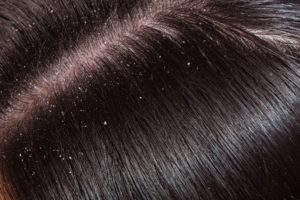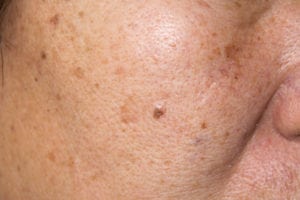Very often, when someone takes off their shoes, a strong unpleasant smell is released. Foot odour is a type of body odour that can affect the feet of humans. The main cause is related to foot sweat. There are two types of sweat glands on your body: apocrine glands and eccrine glands. Apocrine glands are mainly found near hair follicles. Eccrine glands, on the other hand, are located in the skin all over your body, including your feet.
HOW FOOT ODOUR DEVELOPS
Each foot has 250,000 sweat glands and produces about a cup (250 ml) of sweat daily. The sweat has the function to naturally cool off and get rid of excess heat. On its own, the sweat produced by the eccrine glands on the soles of the feet is pretty much just water and salt, and doesn’t have any odour, but it creates a beneficial environment for certain bacteria to grow. The smell in fact arises, when the bacteria consume our sweat for their metabolism. They ingest various salts and minerals, and excrete waste products. The main waste product is isovaleric acid, which is a fatty acid that causes the smell in our feet. The bacteria that grow on the soles of feet actually produce gases similar to those released by bacteria used in producing cheese; hence the name ‘cheesy feet’.
ITS ORIGINS
Therefore, bacteria are the real cause of foot odour. These bacteria are naturally present on our skin as part of the human flora. In fact, we co-exist with thousands of microorganisms and never give them much consideration. The interaction between the perspiration and the bacteria that thrive in shoes and socks generates the odour. Hence, any attempt to reduce foot odour has to address both sweating and footwear.
SWEAT
Anyone can get sweaty feet, regardless of the temperature or time of year. Feet have more sweat glands per inch of skin than any other part of the body, and these glands produce sweat profusely and all the time, not just when the weather is hot or during exercise as other parts of the body do. The actual number of sweat glands and the amount of sweat secreted will differ from person to person, depending on their physiology and body metabolism. The reason some people have feet that smell more than others could be that they simply sweat more. Therefore, even the most meticulously clean people can suffer from foot odour. Smelly feet or excessive sweating can also be caused by an inherited condition, called hyperhidrosis, which primarily affects men. Stress, some medications, fluid intake, and hormonal changes also can increase the amount of perspiration our bodies produce.
SHOES AND SOCKS
The main cause of sweaty feet is bacterial growth combined with wearing the same shoes every day. The front part of the foot is where the most sweat is produced. Therefore, foot odour can be exacerbated by factors causing more sweating, such as wearing closed-toe shoes for many hours. Socks generally do not cause foot odour on their own. However, when worn along with shoes, socks can help to trap the hair on the feet, especially on the toes. This may contribute to the odour’s intensity by adding increased surface area in which the bacteria can thrive. When we wear socks and shoes, the sweat in our feet is unable to escape anywhere. The moist, warm and dark environment in our shoes is perfect for bacteria to multiply and reproduce. Moreover, feet become smelly if sweat soaks into shoes and they don’t dry before you wear them again.
HOW TO PREVENT FOOT ODOUR
Smelly feet, which are a type of a more generic body odour condition called bromhidrosis, can be very embarrassing and uncomfortable. There are many people who have to deal with this problem every day. But once the reason behind the problem is understood, it is possible to take steps to manage it. Since foot odour is caused by bacteria feeding on sweat collected on the feet producing smelly secretions, there are two main ways to reduce smell:
1) Decreasing the amount of sweat that collects on the feet
2) Decreasing the amount of bacteria on the feet
Changing shoes regularly and making sure their soles dry properly are examples of some simple measures that can be taken to moderate foot odour. Additionally, topical products designed to have an impact on sweat or bacteria, may assist in reducing foot odour. In 2006 a study by Ara K. et Al. looked at “Foot odour due to microbial metabolism and its control” and identified various naturally occurring substances and fragrant agents such as citral, citronella, and geraniol that inhibit microbial production of foot odour without disturbing the normal microbial flora of the human skin. Further research and product development in this area could be beneficial to help control this commonly occurring problem.
References
http://www.all-science-fair-projects.com/print_project_1300_130
http://www.brianfradettedpm.com/library/1932/SmellyFeetandFootOdor.html
https://www.betterhealth.vic.gov.au/health/conditionsandtreatments/foot-odour-causes-and-cures
http://www.bupa.com.hk/eng/intermediary/health-information/health-topics/Smelly-feet.aspx
http://www.nhs.uk/Livewell/foothealth/Pages/smellyfeet.aspx
http://www.brighthub.com/science/genetics/articles/48373.aspx




